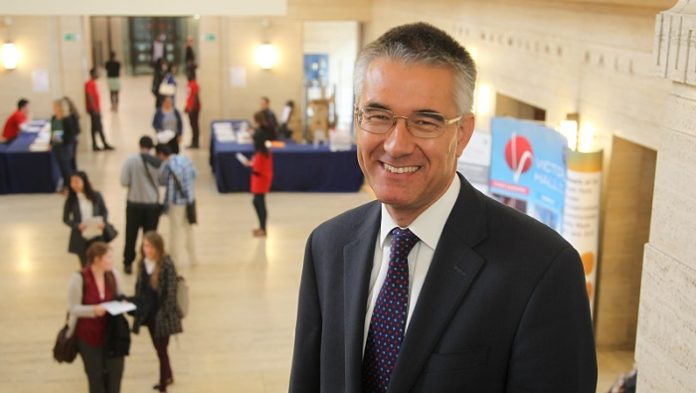Attracting and keeping staff in one of the most expensive cities in the world is a challenge. Kim Frost, director of human resources at the University of London, and chair of Universities Human Resources, tells us about how working efficiently can help to meet this challenge.
- How does the efficiency agenda relate to your role?
Here in the University of London we face the same challenges as everyone else: how to do more for less, and direct our resources to students and the academic enterprise but still present an attractive proposition to all our employees. As HR director that means, for example, looking at flexible working practices which will not only make best use of our central London office space, but also offer working practices that will attract and retain staff and keep them engaged.
We are located in the centre of one of the most expensive cities in the world, and the challenges this poses for recruiting and retaining staff are very significant. Since we are limited on pay we have to be imaginative and efficient with the resources we do have for staff, particularly around training, development and staff benefits.
We recently launched a very popular staff benefits scheme using salary sacrifice and besides offering staff very attractive deals on goods and services, there have been significant NI savings for the institution.
- What are you working on at the moment?
Two of the university’s major current projects play directly to the efficiency agenda. First, we have launched a shared services venture offering services to institutions in London and beyond around computing, student services and careers. This brings challenges of working practices and contracts of employment that suit a more commercial venture.
Secondly we are working on a major co-location of our professional and support departments in the lower ground floor of our main 1930’s building, with modern open plan accommodation and agile working so that people are no longer tied to one place to do their work. This is a significant culture change and we in HR are doing a lot of training and coaching to make sure it works.
- What have been your most successful efficiency strategies at the University of London?
The University of London has been an exemplar of shared services and the efficiencies they bring for decades; our careers service is delivered to a lot of different institutions including UCL, Kings and Royal Holloway; our intercollegiate halls of residence provide beds to almost 3,000 students from across London and our university library is a vital shared resource for students of the colleges and scholars nationally and internationally and is one of the great libraries of Europe. So the efficiency agenda is in the DNA of the university.
- Do you feel that universities’ achievements in delivering value for money have been overlooked and if so, how could they be promoted better?
Yes. The Diamond efficiency review in 2015 summed it up:
“The sector is moving towards a ten-year track record of delivering efficiencies. Universities have consistently met efficiency targets that had been set in successive Comprehensive Spending Reviews (£1.38 billion of efficiencies were reported against a cumulative target of £1.23 billion) and have made over £1 billion in efficiency and cost savings over the last three years.”
This is a huge achievement but it isn’t always recognised by government or those outside HE.
As a sector we do need to trumpet our achievement more – case studies, thumbnail sketches and short success stories that catch people’s imagination and attention always work well, but we don’t always find it easy to capture these, or take time to write them up and tell the wider world. Journals for the professional services bodies, such as our own CIPD, are widely read, and we should be looking to speak at conferences and other platforms for publicising our achievements.
- What do you enjoy most about your role?
I feel very lucky to have a role where two days are never the same. People are endlessly varied and surprising and I find human behaviour to be the most fascinating subject. I’ve worked in a number of different sectors but universities and the people who work in them are the most interesting by some distance.
- What do you like to do outside your role?
Apart from family life, I read a lot of novels and keep up my interest in ancient Greek. Herodotus can teach you a lot about people.
Chair of Universities Human Resources and director of HR at the University of London (Senate House)





